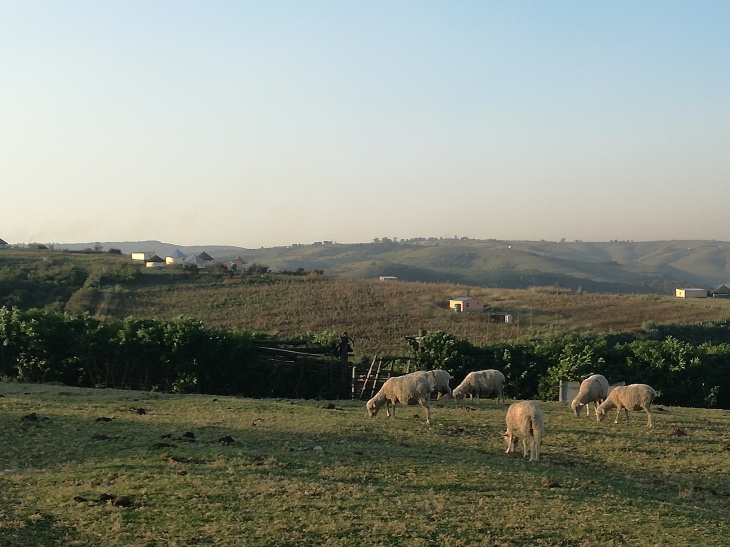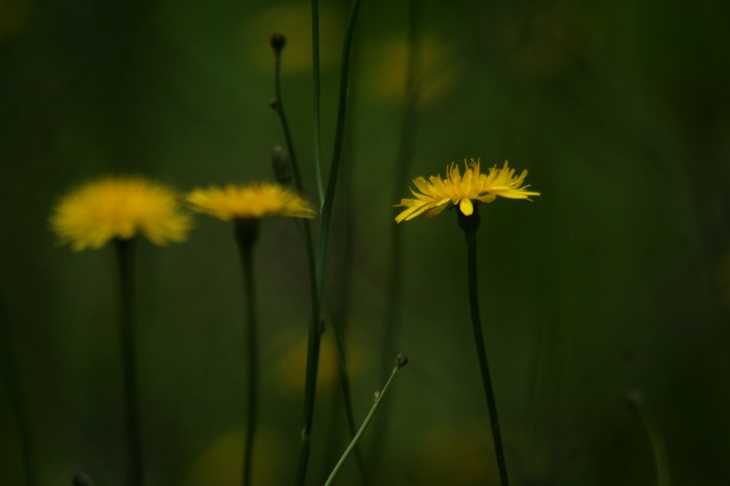Author: Megan Higgo
In July 2017, I had the opportunity to visit Mqanduli, a small town in rural Eastern Cape, to conduct research for a community development project. Our goal was to look for market gaps that could provide a local solar energy enterprise with an additional income stream, allowing them to simultaneously uplift the community and increase the wages of the women they employed.
Our task involved interviewing residents about their unmet needs, desires, hardships and general health. We spoke with elderly women making their livelihoods by selling vetkoek, a traditional South African fried dough bread, through the gaps in the high school fence. We interviewed teachers about their struggles with overflowing classrooms, power outages and a shortage of textbooks. We consulted dozens of enthusiastic teenagers eager to see change in their neighbourhood.

Outside Mqanduli’s clinic, we came across a long line of locals, many of them having walked miles across the hilly Eastern Cape landscape for the opportunity to be examined by a medical doctor or nurse. One of the consultations I was allowed to observe was with a woman whose infant daughter was covered in eczema. After receiving a topical corticosteroid, the woman thanked the doctor, wrapped her baby onto her back, and set out. When I asked her about the distance home, she replied that it was a two-hour walk and that she was stopping along the way to see the local sangoma (traditional healer) for further consultation. She added that she wanted to see all the professionals she could, and that God would heal her child.
At first glance, this approach may seem contradictory. How can someone trust a Western doctor, a traditional healer, and God, all at the same time? In reality, this seemingly conflicting approach to healthcare is common in South Africa.
The popular comedian and host of the American “The Daily Show”, Trevor Noah, describes this phenomenon in his memoir, Born a Crime:
“South Africa is a mix of the old and the new, the ancient and the modern, and South African Christianity is a perfect example of this. We adopted the religion of our colonizers, but most people held on to the old ancestral ways, too, just in case. In South Africa, faith in the Holy Trinity exists quite comfortably alongside belief in witchcraft, in casting spells and putting curses on one’s enemies.”
And, from what I’ve seen, belief in the utility of Western Medicine coexists with ancestral spiritual beliefs.
At the time, my Western scientifically trained mind dismissed this seemingly antithetical approach as silliness. I understood the human body is a system. I had been taught that medical practitioners are therefore specialised systems analysts. Why would a person waste time consulting anyone else?
After this initial reflexive thought, I remembered a lazy winter afternoon years ago: my friend and I were lounging on her bed after school, drinking tea and discussing life. I told her about how bummed I was that I would miss a swimming gala that weekend due to a foot injury. Moments later, the door swung open, and my friend’s mom pranced into the room. Aunty Nicole – a lifelong fan of alternative approaches to healing – had overheard the conversation.
“Here’s some dandelion essence for you,” she said, handing me a vial of liquid. “It will help you heal.”
I thanked her for the gift, internally amused by the notion that drinking this concoction would serve any purpose at all. Pfft, flowers aren’t magical, I thought. But you know what? Every morning when I took a swig of the stuff, admiring the cute vial with the words “For Peace” lovingly scrawled onto it in glitter ink, I felt much better.
My foot injury was a physical problem, but there was more to it than that. It had affected my mood, my spiritual state. And, unexpectedly, it was this unconventional ritual that helped me to heal.

Yes, medicine is a science. Flowers can’t fix cancer. A traditional healer can’t cure someone of HIV. While science deals with knowledge, spirituality involves the ways in which we coexist philosophically, psychologically and emotionally with that which we know. For me, science provides us with information about our health, but it is spirituality that helps us wrap our heads around it.
In the words of Carl Sagan, the popular American astronomer:
“The notion that science and spirituality are somehow mutually exclusive does a disservice to both.”
Spirituality and science need not be viewed in opposition to each other. The value of the one does not discount the meaningfulness of the other, as they address different needs.
Now, when my ouma tells me that prayer will help heal her emphysema, I don’t purse my lips. Prayer does improve her overall health as it is part of her faith, and it helps her to cope with her condition. Perhaps one of the most important services a doctor can offer a patient is a willingness to listen. This way, doctors can help find solutions that will attend not only to their patient’s physical needs but to their spiritual concerns as well.
My visit to Mqanduli taught me more than I expected; providing a key moment to reflect on my own Western superiority complex. I now understand that Western medicine, traditional healing and religion can be complementary in nature and that, instead of dismissing the beliefs of others, global health professionals should appreciate the solutions provided for those needs that science cannot meet.